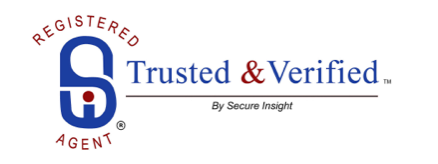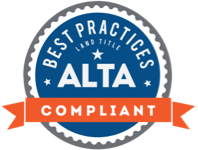Websites and real estate professionals generally offer similar advice on closing costs: set aside X% of the purchase price for closing.
Most homebuyers, especially those buying their first home, want a more precise answer. Once a contract has been signed and a mortgage has been approved, the lender will provide an estimate of closing costs. But buyers can get an estimate that’s generally as precise as their lender’s with only an address—before putting in an offer or even looking at a property. And that same resource can identify potential title, zoning, permit, and other issues that buyers will want to know before making an offer.
Unraveling the Mysteries of Closing Costs
Closing costs include various taxes and fees charged by government agencies, the lender, the title insurance company, and whomever you use to manage the closing. Many of those costs are fixed, and a few will vary depending on the home’s price. Typically, some are paid by the buyer and some by the seller.
Sellers normally pay the transfer taxes, formally known as the Real Property Transfer Tax for New York City (if the property is in the city) and New York State. These taxes can be significant, with combined city and state taxes of approximately 1-3% of the sale price. Sellers of high-value homes may have to pay an additional mansion tax.
While sellers sometimes ask the buyer to pay some of the transfer tax during the negotiation process, this is rare in the New York area.
Buyers will pay a variety of fees at closing, most of them relatively small. The largest fee is the mortgage tax, which can be approximately 2-3% of the mortgage amount. In most cases, the lender will pay a small portion of the mortgage tax, but buyers will be responsible for the majority of it.
One Place (and Two Reasons) to Check Closing Costs Early
Cornerstone has a free tool that will quickly and accurately estimate title-related closing costs on any property. (Click on the red widget in the bottom right-hand corner of the page.) Prospective buyers only need to enter the property address and the estimated mortgage amount for a complete listing of closing costs. Buyers can even explore “what if” scenarios and see how a different selling price or mortgage amount will change the anticipated closing costs.
The tool can also generate closing title-related costs for cash deals (with no mortgage) and refinances. Buyers can get a free estimate of closing costs even before touring a home or making an offer.
This information can be invaluable when comparing homes in different areas. A difference in closing costs may make one property more attractive than another.
There’s a second, even more compelling, reason to contact Cornerstone early in the buying process, even before making an offer on a home: we can find potential issues that may affect the property.
Are there any open violations tied to the property? Was an addition or a deck built without the proper permits? Are there any liens on the property that will have to be satisfied before completing the purchase?
Even honest sellers may be unaware of potential issues that prospective homebuyers will want to know before making an offer.
Talk to Cornerstone First
With the experience gained from more than 16,000 transactions, Cornerstone can be an invaluable resource for homebuyers. We can connect buyers with real estate professionals in every area who meet the same high standards we do for customer service, expertise, and integrity. We can also provide information on costs to help make the best buying decision.
There’s a reason why Cornerstone has a five-star rating from Google reviews. And because title insurance rates are set by the government, buyers who use Cornerstone don’t pay more—although they certainly get more. The earlier you are in the buying process when you contact us, the more we can help. If the American Dream of homeownership is important to you, please contact us.




